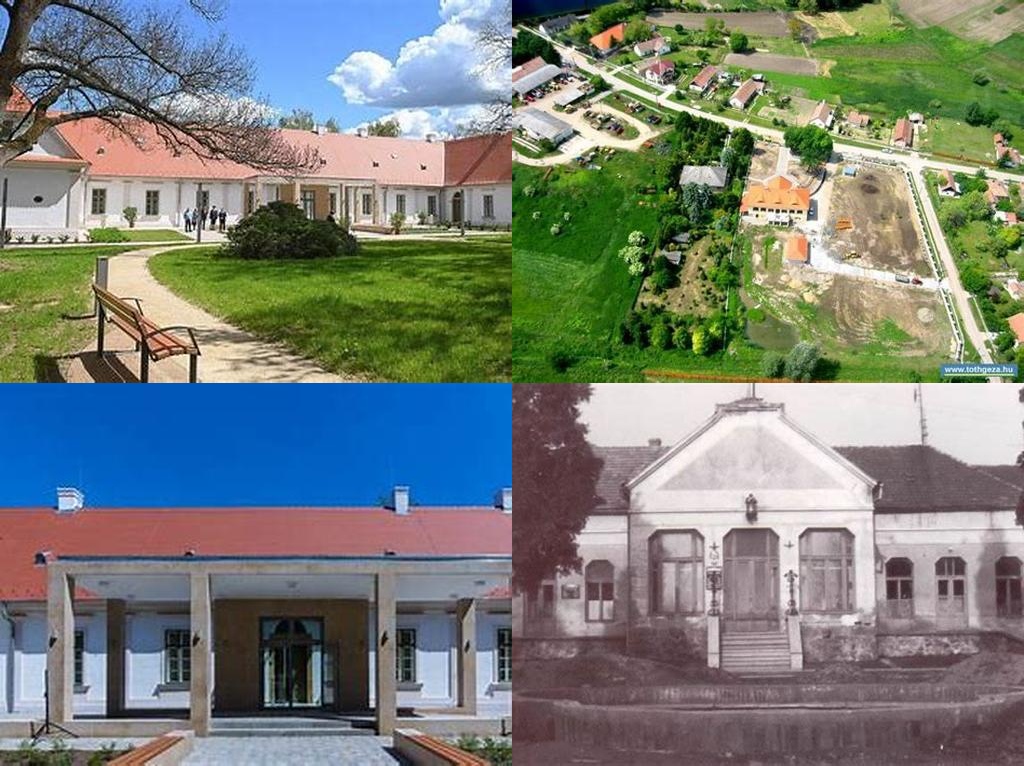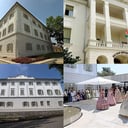
Perczel-kúria stands quietly in the small village of Kömlőd, where countryside charm collides with Hungarian history in the most quietly remarkable way. You might drive through this snug corner of Komárom-Esztergom county without knowing you’re close to a place where the story of a nation once took shape. The mansion is old, sure, but don’t expect peeling grandeur or flaking columns hiding revolutionary secrets—what grabs you first is how personal and human its story feels. It’s not Versailles or Schönbrunn: it’s much closer to the Hungarian soil, and maybe that’s the beauty of it.
Many people have probably never heard the name Mór Perczel, yet his life resonates beyond the old stones of his home. Born in 1811, Perczel was a landowner and a key general in the 1848-49 Hungarian Revolution and War of Independence. He was one of those rare figures who both led on the battlefield and fought in parliament. When you walk the mansion’s shaded grounds and picture how this patriotic nobleman once strategized in its rooms, you can almost hear the hum of urgent discussions and the passionate voices of freedom-seekers. The mansion itself bears the wear of those turbulent times, though age has softened it into something more wistful than defiant.
The low, elegant building dates back to the late 18th century, with subsequent additions sprinkled through the decades as Perczel’s family grew and their needs shifted. The architecture is restrained but gracious—a single storey with a classical vibe that leans more rural manor than aristocratic palace. Even before you step inside, the park that surrounds the manor is worth wandering through. Old-growth trees and romantic walkways create dappled sunlight on the grass, and on a quiet afternoon, it feels like the history here is suspended between the gentle breeze and the slow hum of insects. There’s something almost timeless about the setting: the village itself looks much as it did in previous centuries, and so the mansion slots naturally into its environment.
What makes Perczel-kúria so different from more famous Hungarian mansions is just how much local history remains alive here. This isn’t a place with velvet ropes and distant artifacts. Instead, you’ll find a small museum inside the mansion dedicated to Mór Perczel and the revolutionary spirit that swept through Hungary in the mid-19th century. Family portraits hang alongside displays chronicling the events that turned an obscure landowner from Kömlőd into a leader of thousands. There’s an intimacy here that makes history feel alive and oddly relatable: you might spot personal objects, faded heirlooms, and scrapbooks that could belong to any family, except this family lived through the kind of epochal changes that shaped Hungarian identity.
The stories in the mansion go deeper than dusty heroics. You’ll see hints of how these grand houses were places of learning, culture, and debate. The library—once spilling over with newspapers, handwritten letters, maps, and books—isn’t whole now, but imagining Perczel poring over military reports with candlelight evokes a lost world thriving quietly behind closed doors. Even the mansion’s modest outbuildings, once bustling with agricultural routine and estate workers, whisper about everyday life and resilience. This is a house that saw not just the glamor of power, but the frustrations and boredom that define ordinary living.
If you’re interested in more than just the big, glossy chapters of history, the mansion is a fine antidote to the theme park version of the past. Perczel-kúria is also a place of reflection. The gardens invite you to pause, look up at the shifting sky, or listen to village sounds fading in the distance. Locals still remember the Perczel family here; sometimes, you’ll find them sharing tales that add humanity, warmth, and just a pinch of gossip to the grand sweep of Hungarian history. There’s something about their pride that draws you in, making the connection between past and present palpable.
And that, perhaps, is the real reason you should find your way to Kömlőd: to experience a place where national dramas were once second to the small, everyday dramas of family and village life. Perczel-kúria is unhurried, quietly fascinating, and honest. When you leave, the sense of lives lived resolutely for causes small and large might follow you home—a welcome souvenir more lasting than any photograph.





